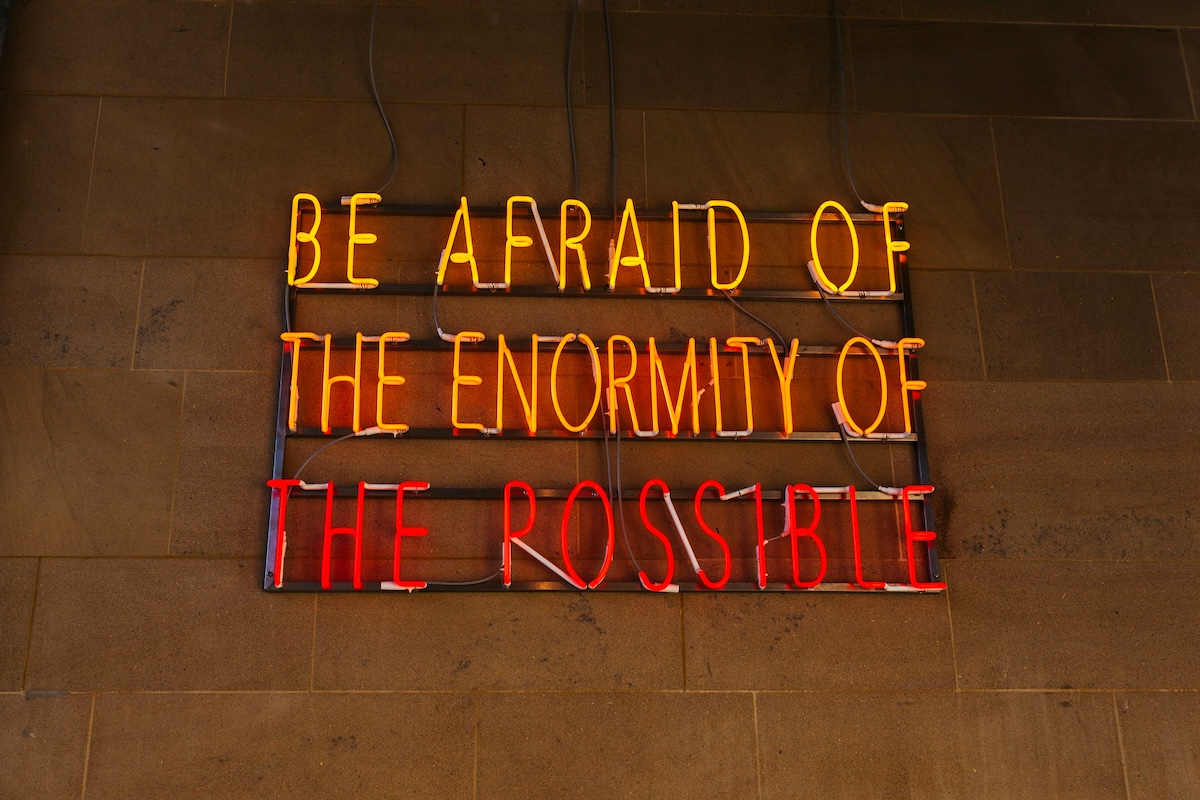· Ken Hoppmann · Book excerpt · 5 min read
Words we say to ourselves: should, want to, try, will
Today I'm thinking about how we speak to ourselves...

Today I’m thinking about how we speak to ourselves. The words we use really matter, don’t they? We often “should” all over ourselves, an expression a rather engaging speaker once surprised his audience with. After those in the sizable crowd regained their composure, we all got his point. We tell ourselves that we SHOULD do this, and we SHOULD do that. Using this kind of language really does nothing for productivity. Rather, it sets us up for failure. What happens if we DON’T do what we SHOULD? Have we failed? Or, are we just setting up a utopia of how our lives COULD be better IF we did what we SHOULD?
Others have suggested that we frame our goals with the term “I want to do this, or I want to do that.” The psychology of this type of language is apparent. It becomes a positive—something that we initiate—rather than a negative that is forced upon us. It gives us a sense of agency over our lives, and allows us to determine what we will become if we do what we WANT. However, there still is little to no action involved in this language. Just because I WANT something doesn’t mean I will achieve it, or that I “have what it takes” to accomplish it.
Once we have identified what we WANT, it’s time to turn it into action. We know it will take some time and effort, as well as some dedication, to accomplish the task at hand. Will we be able to devote the necessary time, effort and dedication to the task, or is it beyond us? We know that we are in control, so we muster up all of our power and resolve and come up with the best that we can do: I’ll TRY…
Wait, what? I’ll TRY to do it? What should have been a strong action word, filled with all the power and strength we can garner has now lost its luster. With that one word, we have let the air out of our own sails. We have squelched our internal spark that was just starting to burn. We are leaving the door open with “I’ll TRY”, but really in the back of our minds we have already allowed ourselves to fail. We know we don’t intend to accomplish the goal, but it seems more socially acceptable to at least leave the door open for possible success.
This brings me to perhaps the best and most action-oriented word to use: WILL. There is something strong and almost magical about the statement “I WILL”. We feel as if we are going in a defined direction, with solid goals and a better than average chance of accomplishing those goals. We WILL make something happen. We WILL become something or someone. We have given this some serious thought and have decided, or WILLED ourselves to victory. The word “WILL” often seems to be thought of as a noun, as in “a will” that states where the deceased person’s estate will go upon his or her death. Personally, I have grown to like the word “Will” as a verb. It is a very strong action word, which gives me the idea of a person gathering together all his or her power, imbuing it with razor-sharp focus and precision of movement, and adding the resolve to accomplish a task come “hell or high water” as my dad used to say. Nothing can stop me from accomplishing a task that I have “willed”. I am a force of nature. I can and I will overcome. Wow!
Once we have willed ourselves to do something and looked nature and life squarely in the eye, challenging it to throw us its very best, what could possibly go wrong, I ask with my tongue planted firmly in my cheek? Oh, the many things that can and do attack us as soon as we have willed ourselves to do something great, or even mediocre! In our own shared experience as people with Parkinson’s (PWP), we know too well what those obstacles can be. We never seem to know if we’ll have sufficient energy to follow through with our plans. Will we be in pain, or be suffering from weakness of muscles? Will we be able to walk, or drive on the day that we are planning to accomplish our goal? These are very real possibilities that we will experience during the course of our relationship with Parkinson’s disease. We WILL need to maneuver around these, and other, roadblocks. How do we keep going without losing our resolve to do the things we want to do? The things that give life meaning?
The reality of our situations, while all different, is still unifying. We are living with and fighting a progressive movement disorder that will not get better. We have an uninvited guest that we always have to plan around. We have to set a place for Parkinson’s at every table we ever occupy. We have to consider its demands whenever we are making plans. What does Parkinson’s require of us as we prepare for the big day, as we live the big day, and as we recover from the big day? We all need to ask ourselves these questions, and fashion personalized answers and plans to deal with the symptoms Parkinson’s will throw at us. This is quite general, and definitely needs more consideration. More on this tomorrow.
908 words
25/5 and 25/5 minutes
Day 2.
Success!



